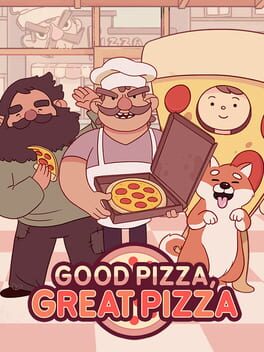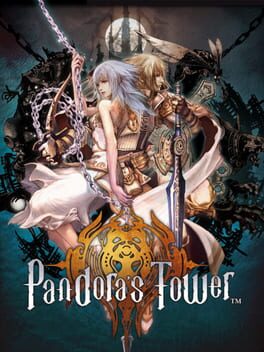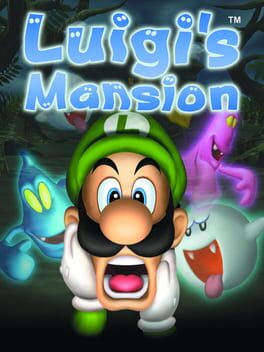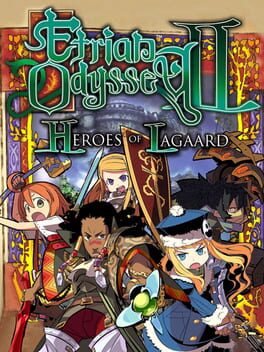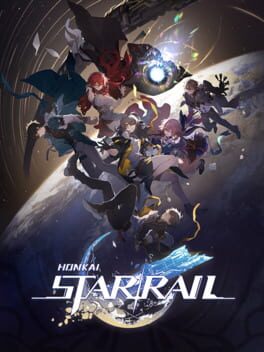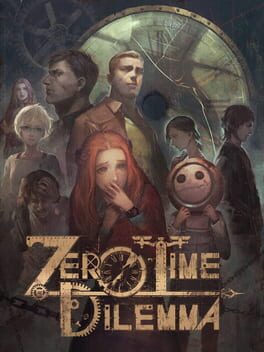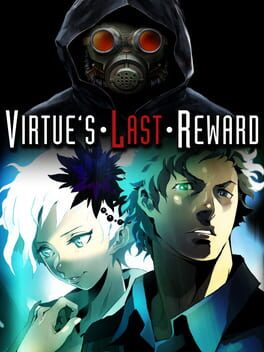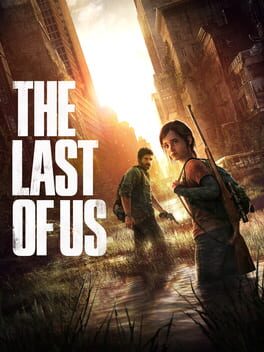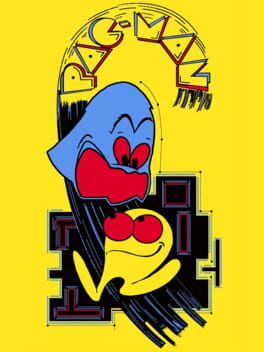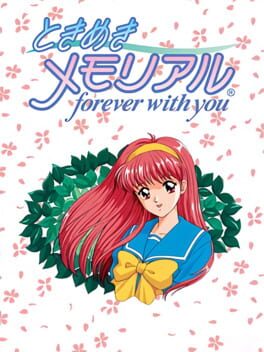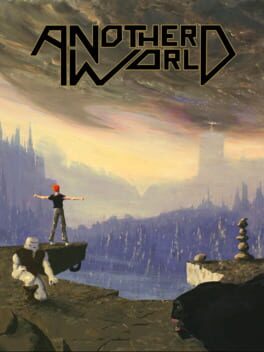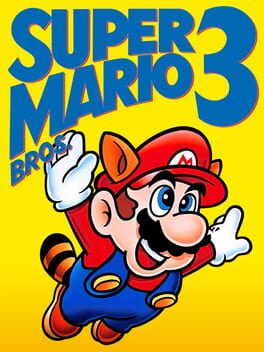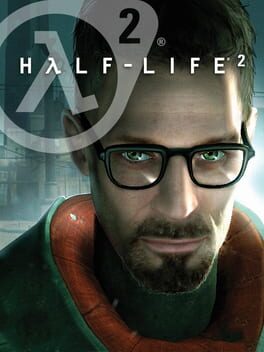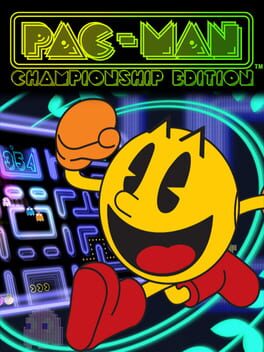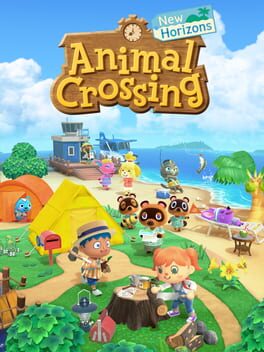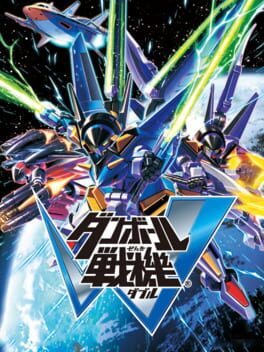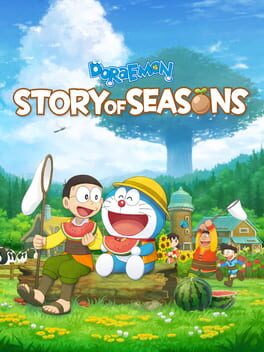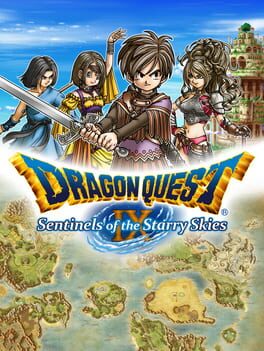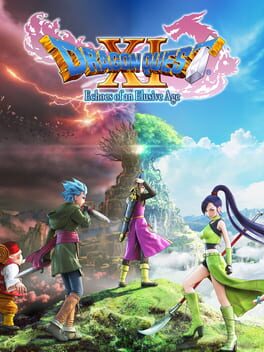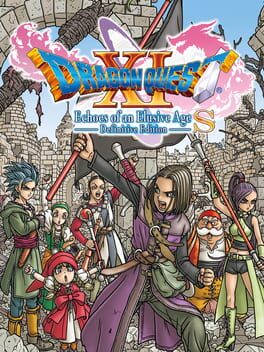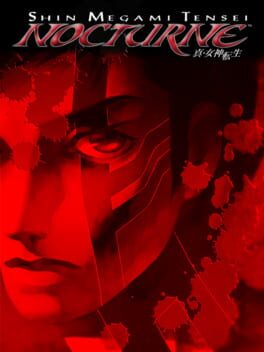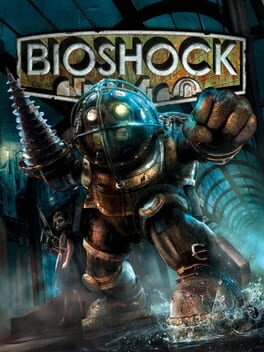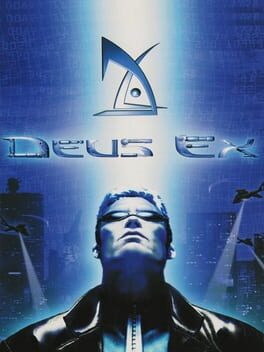48 reviews liked by indaiei
Persona 3 Reload
2024
--Memento Mori--
When I was young, I became aware of death pretty quickly. Growing up in various poor parts of Los Angeles, I was exposed to a lot of the harshest aspects of life. Many people I knew fell in with the wrong crowds—were at the wrong place at the wrong time—weren’t given a chance to live. Up until I was about 19, nearly all of my dreams at night were about my own end. Death was all around me. But being aware of death and understanding it are two very different things. Persona 3 acknowledges this and does its best to teach you the difference.
“The Arcana is the means by which all is revealed… The moment man devoured the fruit of knowledge, he sealed his fate... Entrusting his future to the cards, he clings to a dim hope. Attaining one's dream requires a stern will and unfailing determination."
Originally released back in 2006, Persona 3 was the game to create and cement the modern Persona formula made more popular by Persona 4 and exploding into the mainstream with overnight acclaim in Persona 5. As an architect of its own genre, Persona 3 lacked many elements that later fans would come to love and expect from the series. Far from as alienating as the three games preceding it, Persona 3 still found itself in this space of “outdated” design by many people. While I strongly disagree with that mentality, it is ultimately what lead to Persona 3 Reload—released only a month prior to this review.
"The Arcana is the means by which all is revealed... The silent voice within one's heart whispers the most profound wisdom."
My journey into the realm of Persona, and by extension, the greater Megami Tensei franchise is a bit odd. Rather than starting with one of the more popular RPG titles, I was exposed to what would later become my favorite series through Persona 4 Arena—a 2D fighting game spin-off of Persona 3’s successor. After struggling to find a character I truly resonated with, I researched the series a bit and found Persona 3. I was immediately enticed by its protagonist’s design, the blue color scheme, and most notably—Thanatos.
"The Arcana is the means by which all is revealed... Celebrate life's grandeur...It's brilliance...It's magnificence..."
I immediately found a way to… acquire the game and played it start to finish in a matter of days. I was hooked. The core gameplay, the music, the presentation was all right up my alley. But more than that, its theme and its characters resonated with me immensely. Persona 3 came to me at the perfect time. In 2012, I was in my final year of high school about to enter the real world at 17 with no sense of direction and no vision of the future. Completely aimless—lost, even.
"The Arcana is the means by which all is revealed... Only courage in the face of doubt can lead one to the answer..."
Each of P Studios’ titles follow a theme based on a major arcana tarot card starting with Persona 3: Arcana XIII—Death. While each title under their belt carries their themes with conviction, Persona 3’s commitment to death stands out even amongst its brethren. Everyone will and must confront mortality in their life. Death will befall our friends, our family, our pets, and ourselves. There is no exception. Persona 3 highlights this with each core character (and most of its side cast) having experienced a major death in their life, leading them onto the path they currently walk. As a necessary hard stop in our lives, death changes us in different ways. Some lash out in anger, others may retreat into themselves, and some may sever all ties as a means to prevent that familiar pain from returning. But eventually, you will have to face it, one way or another.
"The Arcana is the means by which all is revealed... It is indeed a precious gift to understand the forces that guide oneself..."
I was an apathetic teenager. I had no sense of self-worth, and I often found myself drifting off into daydreams about the end and how it would come. What the world would be like afterward. What would change. I wasn’t suicidal—far from it, really. I was simply carrying on each day without direction or meaning. I had friends, and I was relatively popular with most people… but I felt empty. People came and went from my life, and it was just something to be expected. Nothing to be mourned or understood—it simply was.
"The Arcana is the means by which all is revealed... There is both joy and wonder in coming to understand the hearts of others..."
This all changed when I met the love of my life. As cliché as it may sound, she breathed life into me. And not in some quirky, fantasy woman way. Over time, on my own accord, I found myself wanting to do things. Wanting to be with people. Wanting to create memories and cherish them. Treating people with kindness over dismissive nonchalance. Opening up to people, and creating meaningful bonds. Understanding death means understanding life, and while I met her a few months prior… this was also 2012.
"The Arcana is the means by which all is revealed... One of the greatest blessings attained from the gift of life is the freedom to pursue one's personal goals..."
What is there new to say about the Persona formula known the world over through Persona 5? Not much, I imagine, so I’ll keep it brief. As Makoto Yuki, you return to Tatsumi Port Island ten years after a world-changing incident that brought about the Dark Hour—a hidden 25th hour in each day unbeknownst to those without Potential—the ability to manifest your inner psyche as a weapon known as Persona. Together with your comrades, you battle Shadows—amalgamations of the darkness within people given form—in an attempt to return the world to a state of normalcy. The game follows a hybrid formula of dungeon-crawling with turn-based JRPG battles and life simulation visual novel-type character moments. The two aspects support one another brilliantly and flow together in a cocktail of satisfying gameplay and memorable writing.
"The Arcana is the means by which all is revealed... To find the one true path, one must seek guidance amidst uncertainty..."
So, what’s different in Reload? Besides the visual updates, many quality of life changes have been made for modern audiences to get into and not get so filtered. Tartarus by nature will continue to do that to some degree, but the pain newcomers will feel has been heavily subdued. Battles are lightning quick now and every minor aspect has a neat little flourish to it not present in the original. The game’s balancing has had tweaks to make boss fights less of a pushover as well.
"The Arcana is the means by which all is revealed... It requires great courage to look within oneself, and forge one's own path..."
While that’s all well and good, the real meat of Reload for me are the story additions and full voice acting for all Social Links. In the original Persona 3, Makoto could not spend time with male party members outside of combat. They did not have Social Links in any form, and as such, did not get fleshed out to the same degree as the female cast members. This has been rectified with the addition of new Link Episodes—optional events with each character that provide just as much if not more memorable scenes for these characters than Social Links ever have. Without exaggeration, these are my favorite moments of Persona 3 Reload outside of its main story.
"The Arcana is the means by which all is revealed... Ever-present alongside time is fortune, cruel and unflinching."
In addition to the party member Link Episodes are new scenes involving Strega that make them feel more like people inhabiting the same world and less like laughable obstacles to trounce with a single auto-attack. Ryoji Mochizuki—a prominent character in the late game—also receives this treatment and the game shines brilliantly when these moments arise.
"The Arcana is the means by which all is revealed... One needs strength to endure, and rise above suffering and torment."
The voice acting in Reload is superb nearly all around. While I have some issues with Yukari’s new voice actress, she’s far from detrimental. The rest of the cast really crush it the whole way through with extra shout outs to Zeno Robinson as Junpei Iori and Alejandro Saab as Akihiko Sanada. The former was perfect in every moment, happy and sad, and the latter proved me wrong after my first impressions. That said, the music is unfortunately a mixed bag. Many of the remixes fall short compared to the original (“Burn My Dread -Final Battle-“) but all of the original tracks made for this title are incredible. Special mentions to “Color Your Night” and “It’s Going Down” for two of my new favorites in the series.
"The Arcana is the means by which all is revealed... In the face of unavoidable disaster lies the opportunity to search for redemption."
Persona 3 Reload is by no means a perfect game. Hell, if you asked me, it doesn’t need to exist in the first place. But even through all my doubts, I am glad it does. While at the time of writing this review, it does not have The Answer in any capacity, there have been rumors and leaks aplenty pointing to that inevitability. Even without that, however, I feel confident in saying that Reload is the best way to experience The Journey, and I highly recommend it to anyone that enjoys this series, JRPGs, or memorable storytelling.
"The moment man devoured the fruit of knowledge, he sealed his fate... Entrusting his future to the cards, man clings to a dim hope. Yet, the Arcana is the means by which all is revealed... Beyond the journey you have taken lies the absolute end. It matters not who you are... One thing is always certain: Death awaits all."
FINAL FANTASY VII is my childhood game—the one that shaped who I would become through my adolescence. Similarly, Persona 3 was the game that began my adulthood. It was a game that came to me at just the right time and showed me why life is important and why we should get out there and live it. Persona 3 Reload is a fantastic, faithful remake that I now cherish alongside the original. Playing Reload was like revisiting an old friend that you’ve longed to see again after all these years. As soon as I picked it up, and even know after clearing it 100% through two playthroughs, I still feel sad to let it go. This game—whether it’s the original release, FES, or Reload—will forever have a place with me.
"No one can escape time; it delivers us all to the same end. You can't plug your ears and cover your eyes."
When I was young, I became aware of death pretty quickly. Growing up in various poor parts of Los Angeles, I was exposed to a lot of the harshest aspects of life. Many people I knew fell in with the wrong crowds—were at the wrong place at the wrong time—weren’t given a chance to live. Up until I was about 19, nearly all of my dreams at night were about my own end. Death was all around me. But being aware of death and understanding it are two very different things. Persona 3 acknowledges this and does its best to teach you the difference.
“The Arcana is the means by which all is revealed… The moment man devoured the fruit of knowledge, he sealed his fate... Entrusting his future to the cards, he clings to a dim hope. Attaining one's dream requires a stern will and unfailing determination."
Originally released back in 2006, Persona 3 was the game to create and cement the modern Persona formula made more popular by Persona 4 and exploding into the mainstream with overnight acclaim in Persona 5. As an architect of its own genre, Persona 3 lacked many elements that later fans would come to love and expect from the series. Far from as alienating as the three games preceding it, Persona 3 still found itself in this space of “outdated” design by many people. While I strongly disagree with that mentality, it is ultimately what lead to Persona 3 Reload—released only a month prior to this review.
"The Arcana is the means by which all is revealed... The silent voice within one's heart whispers the most profound wisdom."
My journey into the realm of Persona, and by extension, the greater Megami Tensei franchise is a bit odd. Rather than starting with one of the more popular RPG titles, I was exposed to what would later become my favorite series through Persona 4 Arena—a 2D fighting game spin-off of Persona 3’s successor. After struggling to find a character I truly resonated with, I researched the series a bit and found Persona 3. I was immediately enticed by its protagonist’s design, the blue color scheme, and most notably—Thanatos.
"The Arcana is the means by which all is revealed... Celebrate life's grandeur...It's brilliance...It's magnificence..."
I immediately found a way to… acquire the game and played it start to finish in a matter of days. I was hooked. The core gameplay, the music, the presentation was all right up my alley. But more than that, its theme and its characters resonated with me immensely. Persona 3 came to me at the perfect time. In 2012, I was in my final year of high school about to enter the real world at 17 with no sense of direction and no vision of the future. Completely aimless—lost, even.
"The Arcana is the means by which all is revealed... Only courage in the face of doubt can lead one to the answer..."
Each of P Studios’ titles follow a theme based on a major arcana tarot card starting with Persona 3: Arcana XIII—Death. While each title under their belt carries their themes with conviction, Persona 3’s commitment to death stands out even amongst its brethren. Everyone will and must confront mortality in their life. Death will befall our friends, our family, our pets, and ourselves. There is no exception. Persona 3 highlights this with each core character (and most of its side cast) having experienced a major death in their life, leading them onto the path they currently walk. As a necessary hard stop in our lives, death changes us in different ways. Some lash out in anger, others may retreat into themselves, and some may sever all ties as a means to prevent that familiar pain from returning. But eventually, you will have to face it, one way or another.
"The Arcana is the means by which all is revealed... It is indeed a precious gift to understand the forces that guide oneself..."
I was an apathetic teenager. I had no sense of self-worth, and I often found myself drifting off into daydreams about the end and how it would come. What the world would be like afterward. What would change. I wasn’t suicidal—far from it, really. I was simply carrying on each day without direction or meaning. I had friends, and I was relatively popular with most people… but I felt empty. People came and went from my life, and it was just something to be expected. Nothing to be mourned or understood—it simply was.
"The Arcana is the means by which all is revealed... There is both joy and wonder in coming to understand the hearts of others..."
This all changed when I met the love of my life. As cliché as it may sound, she breathed life into me. And not in some quirky, fantasy woman way. Over time, on my own accord, I found myself wanting to do things. Wanting to be with people. Wanting to create memories and cherish them. Treating people with kindness over dismissive nonchalance. Opening up to people, and creating meaningful bonds. Understanding death means understanding life, and while I met her a few months prior… this was also 2012.
"The Arcana is the means by which all is revealed... One of the greatest blessings attained from the gift of life is the freedom to pursue one's personal goals..."
What is there new to say about the Persona formula known the world over through Persona 5? Not much, I imagine, so I’ll keep it brief. As Makoto Yuki, you return to Tatsumi Port Island ten years after a world-changing incident that brought about the Dark Hour—a hidden 25th hour in each day unbeknownst to those without Potential—the ability to manifest your inner psyche as a weapon known as Persona. Together with your comrades, you battle Shadows—amalgamations of the darkness within people given form—in an attempt to return the world to a state of normalcy. The game follows a hybrid formula of dungeon-crawling with turn-based JRPG battles and life simulation visual novel-type character moments. The two aspects support one another brilliantly and flow together in a cocktail of satisfying gameplay and memorable writing.
"The Arcana is the means by which all is revealed... To find the one true path, one must seek guidance amidst uncertainty..."
So, what’s different in Reload? Besides the visual updates, many quality of life changes have been made for modern audiences to get into and not get so filtered. Tartarus by nature will continue to do that to some degree, but the pain newcomers will feel has been heavily subdued. Battles are lightning quick now and every minor aspect has a neat little flourish to it not present in the original. The game’s balancing has had tweaks to make boss fights less of a pushover as well.
"The Arcana is the means by which all is revealed... It requires great courage to look within oneself, and forge one's own path..."
While that’s all well and good, the real meat of Reload for me are the story additions and full voice acting for all Social Links. In the original Persona 3, Makoto could not spend time with male party members outside of combat. They did not have Social Links in any form, and as such, did not get fleshed out to the same degree as the female cast members. This has been rectified with the addition of new Link Episodes—optional events with each character that provide just as much if not more memorable scenes for these characters than Social Links ever have. Without exaggeration, these are my favorite moments of Persona 3 Reload outside of its main story.
"The Arcana is the means by which all is revealed... Ever-present alongside time is fortune, cruel and unflinching."
In addition to the party member Link Episodes are new scenes involving Strega that make them feel more like people inhabiting the same world and less like laughable obstacles to trounce with a single auto-attack. Ryoji Mochizuki—a prominent character in the late game—also receives this treatment and the game shines brilliantly when these moments arise.
"The Arcana is the means by which all is revealed... One needs strength to endure, and rise above suffering and torment."
The voice acting in Reload is superb nearly all around. While I have some issues with Yukari’s new voice actress, she’s far from detrimental. The rest of the cast really crush it the whole way through with extra shout outs to Zeno Robinson as Junpei Iori and Alejandro Saab as Akihiko Sanada. The former was perfect in every moment, happy and sad, and the latter proved me wrong after my first impressions. That said, the music is unfortunately a mixed bag. Many of the remixes fall short compared to the original (“Burn My Dread -Final Battle-“) but all of the original tracks made for this title are incredible. Special mentions to “Color Your Night” and “It’s Going Down” for two of my new favorites in the series.
"The Arcana is the means by which all is revealed... In the face of unavoidable disaster lies the opportunity to search for redemption."
Persona 3 Reload is by no means a perfect game. Hell, if you asked me, it doesn’t need to exist in the first place. But even through all my doubts, I am glad it does. While at the time of writing this review, it does not have The Answer in any capacity, there have been rumors and leaks aplenty pointing to that inevitability. Even without that, however, I feel confident in saying that Reload is the best way to experience The Journey, and I highly recommend it to anyone that enjoys this series, JRPGs, or memorable storytelling.
"The moment man devoured the fruit of knowledge, he sealed his fate... Entrusting his future to the cards, man clings to a dim hope. Yet, the Arcana is the means by which all is revealed... Beyond the journey you have taken lies the absolute end. It matters not who you are... One thing is always certain: Death awaits all."
FINAL FANTASY VII is my childhood game—the one that shaped who I would become through my adolescence. Similarly, Persona 3 was the game that began my adulthood. It was a game that came to me at just the right time and showed me why life is important and why we should get out there and live it. Persona 3 Reload is a fantastic, faithful remake that I now cherish alongside the original. Playing Reload was like revisiting an old friend that you’ve longed to see again after all these years. As soon as I picked it up, and even know after clearing it 100% through two playthroughs, I still feel sad to let it go. This game—whether it’s the original release, FES, or Reload—will forever have a place with me.
"No one can escape time; it delivers us all to the same end. You can't plug your ears and cover your eyes."
Pandora's Tower
2011
“When I turn into a hideous beast… Even then—in that form… do you still love me?”
The final of the three Operation Rainfall games for me to play, and it's the best of the bunch. This game is an emotional journey through a world shrouded in mysteries and heartbreak, and I recommend it to anyone that has the ability to purchase or emulate it. Parallels can be drawn to Shadow of the Colossus fused with some Legend of Zelda, but Pandora's Tower succeeds in finding its own footing and cementing itself as one of—if not the best—game on the Wii.
In the center of a massive crevice between two warring nations are thirteen towers—bound to the edges of the cliffs by massive chains. After having been mysteriously cursed during her country's Harvest Festival, Elena is taken by Aeron and a suspicious old merchant by the name of Mavda to an observatory right outside the Scar. The curse turns her into a malicious beast, and time is running out. Aeron is tasked with scaling the thirteen towers and slaying the Master Beasts atop them, bringing their flesh back for Elena to reluctantly devour. According to Mavda, this will end the curse ailing poor Elena.
Presented with a mix of in-engine cutscenes, higher quality FMVs, and some picture book flashbacks, Pandora's Tower is engaging from start to finish. Immediately, the player is made aware of the deep bonds Aeron and Elena share, and his overwhelming desire to help her. Aeron rarely speaks aloud, but says volumes with his facial expressions and body language. Dialogs with Elena reveal her innocent and caring nature as she tries desperately to be of some help to Aeron as he braves the dangers of the towers. Both of the lead characters are handled magnificently, weaving a believable relationship and developing a desire within the player to see them both happy together. Mavda maintains an air of enigmatic suspiciousness as you learn more about her people's history and the origin of the towers. Additional characters are introduced via flashback scenes and documents that each have their own arcs and events that manage to humanize even the smallest of players in the grander story.
Gameplay consists of two major elements—scaling the thirteen towers and taking care of Elena. With a time limit placed on her by the curse, it is imperative that you always put Elena first and make sure she is fed beast flesh to prevent her from succumbing to her grim fate. Combat is fast but simple. A mix of melee attacks with weapons such as a sword, knives, and scythe and the magical Oraclos Chain given to Aeron by Mavda. Boss fights are the highlight, as each is fought in a unique manner with the Oroclos Chain, rarely calling for Aeron to brandish his sword. I played using a Pro Controller, so the chain's aiming was relegated to the right analog stick. Occasionally, aiming the chain can be a bit jank, targeting items or enemies that get in the way of what you want. It's serviceable, but I imagine the pointer controls on the Wiimote + Nunchuck combo are much quicker and easier to use. Puzzles are simple and exploration is illustrated well with the chains leading the player to the necessary rooms to unlock the boss gate. Pandora's Tower excels in its use of the Oraclos Chain. Even in repeated elemental themes (two for each element), the ways in which the dungeons innovate on familiar functions of the chain keep things fresh and exciting. It helps that you do not need to spend more than an hour in any given dungeon to complete the game.
Visually, Pandora's Tower is one of the best looking titles on the Wii. Characters are detailed, expressive, and engaging. Environments vary within the towers, using elemental themes to dress the dungeons in different guises to mask the sometimes repetitive layouts. You will see the same staircase a couple times, but it never feels cheap or rehashed. Each tower feels unique and worth exploring.
Regrettably, the one aspect that did not do much for me was the soundtrack, which I imagine is contrary to popular opinion. I did not dislike any of the music, but only two or so songs really stuck with me after the credits. Each track services the setting well and helps immerse the player in its world, but I will more than likely not listen to any of the soundtrack outside of playing the game. The voice acting, however, is quite good. On par with Xenoblade Chronicles and The Last Story (which makes sense, considering the localization was handled by the same people), the vocal performances of each character are believable and filled with emotion. While the lip syncing in the dialog scenes don't match, the performances of the voice actors drew my attention plenty. Small note: the sound effects related to the Oraclos Chain are punch and satisfying, as are many of the combat and exploratory SFX.
Unfortunately, as is the case with most rare games I fall in love with, there is one big catch to Pandora's Tower. If you play the NTSC-U version of the game like I did, you will encounter a game-breaking bug during the final two towers that crash the title. There are workarounds, which are mostly effective, but I did hit this crash four times in a row. Nothing was guaranteed. If you can make it past that, this game is absolutely worth your time. If you are emulating, simply grab the PAL ROM and you'll never need to worry about it.
Pandora's Tower is a game I am very glad to have experienced. It has all of the heart of the strongest JRPGs out there, and a solid gameplay loop that does not overstay its welcome. Clocking in at ~15 hours, my time felt very respected... outside of the Blazing Citadel. I only wish that Pandora's Tower had found the same level of success as Xenoblade Chronicles, as I think it's an even better title from an unknown developer that deserves more chances to break away from their licensed work and create more memorable works of art.
“When I turn into a hideous beast… Even then—in that form… do you still love me?”
"Never doubt that."
Special thanks to @CarnageKRool for giving me this game for Christmas in 2022.
The final of the three Operation Rainfall games for me to play, and it's the best of the bunch. This game is an emotional journey through a world shrouded in mysteries and heartbreak, and I recommend it to anyone that has the ability to purchase or emulate it. Parallels can be drawn to Shadow of the Colossus fused with some Legend of Zelda, but Pandora's Tower succeeds in finding its own footing and cementing itself as one of—if not the best—game on the Wii.
In the center of a massive crevice between two warring nations are thirteen towers—bound to the edges of the cliffs by massive chains. After having been mysteriously cursed during her country's Harvest Festival, Elena is taken by Aeron and a suspicious old merchant by the name of Mavda to an observatory right outside the Scar. The curse turns her into a malicious beast, and time is running out. Aeron is tasked with scaling the thirteen towers and slaying the Master Beasts atop them, bringing their flesh back for Elena to reluctantly devour. According to Mavda, this will end the curse ailing poor Elena.
Presented with a mix of in-engine cutscenes, higher quality FMVs, and some picture book flashbacks, Pandora's Tower is engaging from start to finish. Immediately, the player is made aware of the deep bonds Aeron and Elena share, and his overwhelming desire to help her. Aeron rarely speaks aloud, but says volumes with his facial expressions and body language. Dialogs with Elena reveal her innocent and caring nature as she tries desperately to be of some help to Aeron as he braves the dangers of the towers. Both of the lead characters are handled magnificently, weaving a believable relationship and developing a desire within the player to see them both happy together. Mavda maintains an air of enigmatic suspiciousness as you learn more about her people's history and the origin of the towers. Additional characters are introduced via flashback scenes and documents that each have their own arcs and events that manage to humanize even the smallest of players in the grander story.
Gameplay consists of two major elements—scaling the thirteen towers and taking care of Elena. With a time limit placed on her by the curse, it is imperative that you always put Elena first and make sure she is fed beast flesh to prevent her from succumbing to her grim fate. Combat is fast but simple. A mix of melee attacks with weapons such as a sword, knives, and scythe and the magical Oraclos Chain given to Aeron by Mavda. Boss fights are the highlight, as each is fought in a unique manner with the Oroclos Chain, rarely calling for Aeron to brandish his sword. I played using a Pro Controller, so the chain's aiming was relegated to the right analog stick. Occasionally, aiming the chain can be a bit jank, targeting items or enemies that get in the way of what you want. It's serviceable, but I imagine the pointer controls on the Wiimote + Nunchuck combo are much quicker and easier to use. Puzzles are simple and exploration is illustrated well with the chains leading the player to the necessary rooms to unlock the boss gate. Pandora's Tower excels in its use of the Oraclos Chain. Even in repeated elemental themes (two for each element), the ways in which the dungeons innovate on familiar functions of the chain keep things fresh and exciting. It helps that you do not need to spend more than an hour in any given dungeon to complete the game.
Visually, Pandora's Tower is one of the best looking titles on the Wii. Characters are detailed, expressive, and engaging. Environments vary within the towers, using elemental themes to dress the dungeons in different guises to mask the sometimes repetitive layouts. You will see the same staircase a couple times, but it never feels cheap or rehashed. Each tower feels unique and worth exploring.
Regrettably, the one aspect that did not do much for me was the soundtrack, which I imagine is contrary to popular opinion. I did not dislike any of the music, but only two or so songs really stuck with me after the credits. Each track services the setting well and helps immerse the player in its world, but I will more than likely not listen to any of the soundtrack outside of playing the game. The voice acting, however, is quite good. On par with Xenoblade Chronicles and The Last Story (which makes sense, considering the localization was handled by the same people), the vocal performances of each character are believable and filled with emotion. While the lip syncing in the dialog scenes don't match, the performances of the voice actors drew my attention plenty. Small note: the sound effects related to the Oraclos Chain are punch and satisfying, as are many of the combat and exploratory SFX.
Unfortunately, as is the case with most rare games I fall in love with, there is one big catch to Pandora's Tower. If you play the NTSC-U version of the game like I did, you will encounter a game-breaking bug during the final two towers that crash the title. There are workarounds, which are mostly effective, but I did hit this crash four times in a row. Nothing was guaranteed. If you can make it past that, this game is absolutely worth your time. If you are emulating, simply grab the PAL ROM and you'll never need to worry about it.
Pandora's Tower is a game I am very glad to have experienced. It has all of the heart of the strongest JRPGs out there, and a solid gameplay loop that does not overstay its welcome. Clocking in at ~15 hours, my time felt very respected... outside of the Blazing Citadel. I only wish that Pandora's Tower had found the same level of success as Xenoblade Chronicles, as I think it's an even better title from an unknown developer that deserves more chances to break away from their licensed work and create more memorable works of art.
“When I turn into a hideous beast… Even then—in that form… do you still love me?”
"Never doubt that."
Special thanks to @CarnageKRool for giving me this game for Christmas in 2022.
Luigi's Mansion
2001
I have to confess that I enjoy Luigi's Mansion even more than I enjoy a typical Mario game, and that is mainly because of the atmosphere and general concept of Luigi's Mansion. The idea of capturing ghosts in a haunted mansion is so charming when combined with the fun and innocent presentation of a Mario-franchised game that I honestly cannot get enough of it. Luigi's nervous disposition and humming adds to the environment, and the mood is set for the exact type of spooky which I enjoy the most. One particularly noteworthy aspect to this game would be the portrait ghosts, which is a concept I wish they had continued with in the subsequent titles.
That being said, the game is not without its faults. The controls are not the greatest and sometimes flashing ghosts or sucking up items to launch at them can be cumbersome. At the end of the day though, this is really my only criticism of the game, and it is worth playing just for the endless charm it provides.
That being said, the game is not without its faults. The controls are not the greatest and sometimes flashing ghosts or sucking up items to launch at them can be cumbersome. At the end of the day though, this is really my only criticism of the game, and it is worth playing just for the endless charm it provides.
Final Fantasy XVI
2023
(No spoilers)
I went into this game with fairly high expectations in certain aspects. Those being story, characters, gameplay, and spectacle. And while those are some of the most important parts of a good video game, it does fall short in things that I consider minor but others may not. This review focuses on a lot of the negatives, but I want to make it clear that they do not outweigh the positives and I now consider this one of my favorite games of all time.
My biggest problem is the pacing of the main story quests. This game reaches some of the highest highs I've ever had the pleasure of experiencing in a video game, but in the second half it frequently it pulls you back down with menial fetch quests that do nothing but keep you busy while the next spectacle is prepared. There is a precedent to this style of storytelling, giving you time to breathe before going all in on the next major event (for an example of expert story pacing, see the Resident Evil 4 remake), but it happens far too often and does nothing to properly engage the player. While they are relevant to the plot, they also lack any urgency or importance. These kinds of things should be relegated to side quests, not the main story.
Regarding side quests, they are by and large not very good. They do an okay job of building on the world around you, but there is just nothing particularly fun about going to a location and holding X to gather materials (especially egregious that some of these instances happen during the MAIN quest). I shouldn't be surprised since this is a developer known for their MMO work (a genre where side quests are mainly a means to get XP) but I can't help being a little disappointed.
As far as other side content goes, the developers explained there are no minigames or life skills like previous entries in the series as Clive's story is not a happy one and it wouldn't have made sense. I just don't agree, and it sucks that they aren't here. Outside of that, the bulk of side content lies in the hunts, arcade mode, and Chronolith trials. If you're fiending for combat, these are here for you. These are extremely good, and go along with my other biggest praise of the game.
The general combat and individual encounter design is some of the best I have ever played. There were many, many boss fights and hunts that I did in my 30+ hours (so far) and not once did I feel like an attack was poorly designed. It is absurdly fun weaving through telegraphs and interacting with so many cool Eikon abilities.
I have so much more experimenting I need to do, but it's clear from what I've used that every ability is strong in one aspect or another. The mastery system lets you mix things up pretty significantly and there is a lot more player choice here than I had initially thought. The combat itself also has a lot of hidden depth. My one tiny little complaint is toppling enemies with Garuda is so damn good I feel like I'm leaving damage on the table if I'm not using it, which brings me down to only two Eikon slots. Regardless, there are a staggering number of ways to initiate and hold a combo, whether using Eikonic feats or even commanding Torgal. Sure, you CAN beat the game by button mashing--which keeps the barrier to entry low--but there's no way I'm going to do that.
As a side note the itemization in this game is weak, and the crafting system is basic. But this has never been a strength of the series, so I'm okay with a couple stat sticks and damage/cooldown passives.
Rounding off this review with a final look at the positives, I found the story incredible when things were actually happening. It hit every emotional beat and by the end of it I was fully invested and felt the full force of its impact. The sentiment from other reviews is that it goes fairly off the rails in the final act, but personally I feel like it does so in a way that isn't alien to the JRPG genre. Not to dismiss any flaws, but there wasn't anything I was blindsided by and it never really breaks the mold on this type of story. It does fail to address a few things by the end, but not in a way that hindered my experience. The main villain is good but doesn't reach the same heights the best in the franchise do.
The Eikon battles are the peak of the game. When I mentioned highest highs, this is what I was referring to. I went in hoping they weren't just button mashing and QTEs, and it blew my expectations away. These are incredible, immersive battles between titans where scale and spectacle just kept getting bigger. I found myself finishing these and wondering how the next one could possibly be better--but it was every time. These encounters always happened at major story points, and the accompanying cutscenes never disappointed, with smooth transitions between cinematics and gameplay paired with, overall, some of the best English voice acting in video games. I never felt like the line delivery was flat or out of place.
The characters are amazing. There are some real gems in this cast, Clive, Dion, Cid, Byron, and one unnamed character in particular shone the brightest for me. Barnabas is propped up as one of the most powerful characters in the game, and he delivers on that with every moment he takes the screen. Jill unfortunately does not reach the heights that other major female characters in the series do, but I loved her relationship with Clive and she does have her moments. The side characters found in your main hub also fell short for me. They just weren't very interesting.
Creative Business Unit III, known best for their work on Final Fantasy XIV for the last decade, transfers a lot of their storytelling and game design experience to XVI, for better or worse. It's not perfect, but still holds a high score for me.
Thanks for reading if you did.
I went into this game with fairly high expectations in certain aspects. Those being story, characters, gameplay, and spectacle. And while those are some of the most important parts of a good video game, it does fall short in things that I consider minor but others may not. This review focuses on a lot of the negatives, but I want to make it clear that they do not outweigh the positives and I now consider this one of my favorite games of all time.
My biggest problem is the pacing of the main story quests. This game reaches some of the highest highs I've ever had the pleasure of experiencing in a video game, but in the second half it frequently it pulls you back down with menial fetch quests that do nothing but keep you busy while the next spectacle is prepared. There is a precedent to this style of storytelling, giving you time to breathe before going all in on the next major event (for an example of expert story pacing, see the Resident Evil 4 remake), but it happens far too often and does nothing to properly engage the player. While they are relevant to the plot, they also lack any urgency or importance. These kinds of things should be relegated to side quests, not the main story.
Regarding side quests, they are by and large not very good. They do an okay job of building on the world around you, but there is just nothing particularly fun about going to a location and holding X to gather materials (especially egregious that some of these instances happen during the MAIN quest). I shouldn't be surprised since this is a developer known for their MMO work (a genre where side quests are mainly a means to get XP) but I can't help being a little disappointed.
As far as other side content goes, the developers explained there are no minigames or life skills like previous entries in the series as Clive's story is not a happy one and it wouldn't have made sense. I just don't agree, and it sucks that they aren't here. Outside of that, the bulk of side content lies in the hunts, arcade mode, and Chronolith trials. If you're fiending for combat, these are here for you. These are extremely good, and go along with my other biggest praise of the game.
The general combat and individual encounter design is some of the best I have ever played. There were many, many boss fights and hunts that I did in my 30+ hours (so far) and not once did I feel like an attack was poorly designed. It is absurdly fun weaving through telegraphs and interacting with so many cool Eikon abilities.
I have so much more experimenting I need to do, but it's clear from what I've used that every ability is strong in one aspect or another. The mastery system lets you mix things up pretty significantly and there is a lot more player choice here than I had initially thought. The combat itself also has a lot of hidden depth. My one tiny little complaint is toppling enemies with Garuda is so damn good I feel like I'm leaving damage on the table if I'm not using it, which brings me down to only two Eikon slots. Regardless, there are a staggering number of ways to initiate and hold a combo, whether using Eikonic feats or even commanding Torgal. Sure, you CAN beat the game by button mashing--which keeps the barrier to entry low--but there's no way I'm going to do that.
As a side note the itemization in this game is weak, and the crafting system is basic. But this has never been a strength of the series, so I'm okay with a couple stat sticks and damage/cooldown passives.
Rounding off this review with a final look at the positives, I found the story incredible when things were actually happening. It hit every emotional beat and by the end of it I was fully invested and felt the full force of its impact. The sentiment from other reviews is that it goes fairly off the rails in the final act, but personally I feel like it does so in a way that isn't alien to the JRPG genre. Not to dismiss any flaws, but there wasn't anything I was blindsided by and it never really breaks the mold on this type of story. It does fail to address a few things by the end, but not in a way that hindered my experience. The main villain is good but doesn't reach the same heights the best in the franchise do.
The Eikon battles are the peak of the game. When I mentioned highest highs, this is what I was referring to. I went in hoping they weren't just button mashing and QTEs, and it blew my expectations away. These are incredible, immersive battles between titans where scale and spectacle just kept getting bigger. I found myself finishing these and wondering how the next one could possibly be better--but it was every time. These encounters always happened at major story points, and the accompanying cutscenes never disappointed, with smooth transitions between cinematics and gameplay paired with, overall, some of the best English voice acting in video games. I never felt like the line delivery was flat or out of place.
The characters are amazing. There are some real gems in this cast, Clive, Dion, Cid, Byron, and one unnamed character in particular shone the brightest for me. Barnabas is propped up as one of the most powerful characters in the game, and he delivers on that with every moment he takes the screen. Jill unfortunately does not reach the heights that other major female characters in the series do, but I loved her relationship with Clive and she does have her moments. The side characters found in your main hub also fell short for me. They just weren't very interesting.
Creative Business Unit III, known best for their work on Final Fantasy XIV for the last decade, transfers a lot of their storytelling and game design experience to XVI, for better or worse. It's not perfect, but still holds a high score for me.
Thanks for reading if you did.
This game is in such direct conversation with EO1 that they really are best played as a pair. There are a ton of changes in EO2 from EO1, many of which are about breaking everything that was strong in EO1 and making you take a different, often more challenging, approach here. I don't love every change they make (as fun as it is to use an alternate class in a role, a war magus just feels less secure to have around than a medic did), but the changes that are good are Really important to my enjoyment.
Every town NPC has dialogue every time you reach a new floor, which may be the most important change to the feel of the game from EO1. Every town character gets so much more personality, and the game plays with them (introducing character quirks and quest chains) and the time-of-day system (something that was barely relevant in EO1), all the time. Derek the hospital's doctor works all day and doesn’t want to be overheard, so isn't free to meet with you about a sidequest he's posted until 11PM. And in a later stratum there are tiles that save you a lot of time but can only be crossed at night. You will even speak to miscellaneous NPCs in the labyrinth far more now, a minor but still noticeable change.
The strata theming in EO1 was pretty good, and in the moment feels totally appropriate and strong but I like the theming and design of EO2’s strata (basic as the idea is) a lot more. While the series never quite recaptures the feeling of leading up to and then progressing through EO1’s 5th stratum, the 1st through 4th here are really good, and I like most of the 5th in a gameplay sense (though what a letdown compared to 1’s both visually and thematically, oof.)
And lastly the music is absolutely fantastic here, one of the best soundtracks of the series (though they are nearly all excellent).
Overall a great game, the quibbles I have with it don’t compare with the things I love about it, and I am really happy I revisited Lagaard.
Every town NPC has dialogue every time you reach a new floor, which may be the most important change to the feel of the game from EO1. Every town character gets so much more personality, and the game plays with them (introducing character quirks and quest chains) and the time-of-day system (something that was barely relevant in EO1), all the time. Derek the hospital's doctor works all day and doesn’t want to be overheard, so isn't free to meet with you about a sidequest he's posted until 11PM. And in a later stratum there are tiles that save you a lot of time but can only be crossed at night. You will even speak to miscellaneous NPCs in the labyrinth far more now, a minor but still noticeable change.
The strata theming in EO1 was pretty good, and in the moment feels totally appropriate and strong but I like the theming and design of EO2’s strata (basic as the idea is) a lot more. While the series never quite recaptures the feeling of leading up to and then progressing through EO1’s 5th stratum, the 1st through 4th here are really good, and I like most of the 5th in a gameplay sense (though what a letdown compared to 1’s both visually and thematically, oof.)
And lastly the music is absolutely fantastic here, one of the best soundtracks of the series (though they are nearly all excellent).
Overall a great game, the quibbles I have with it don’t compare with the things I love about it, and I am really happy I revisited Lagaard.
Honkai: Star Rail
2023
I was going to wait until I get to the endgame before saying anything, but my gacha addiction has been surprisingly numb, and I'm probably not going to get there anytime soon, so I'm just gonna say my piece right now.
I liked Genshin but I have a lot of annoyances with it, to the point that I consider it a guilty pleasure. That is something I cannot say for Star Rail. It's a much more entertaining, focused and leaner game in every way.
The combat system is slick, flashy, and has more than enough depth considering its mobile game nature. Only thing holding it back is the gacha systems, of course.
While the overall story and world lore seems just okay, the writing for the character dialogues and environmental interactions are quite well done, especially in regards to the absurd "zoomer" sense of humor. They also addressed one of my biggest complaints with Genshin, where older characters would just cease to exist in the game world until another event that involves them pops up. Now you can get messaged by them in game as a daily thing, which is very cool. Even if there's a limit to this, I still consider it a big W. The writing style is still very "trash", as in exaggerated and full of unnecessary flowery words, and it's not gonna be for everyone. But as a trash enjoyer, I consider this to be good trash.
As someone who is not the biggest fan of the BOTW approach on open worlds, I much prefer the detailed and tightly designed smaller spaces that Star Rail offers. I guess it's closer to something like DQXI, although it's not as good.
The one thing that disappointed me is the music/soundtrack. I remember playing Genshin back when it only had up until Liyue content, and even back then there's a lot of great music. Meanwhile in Star Rail, the only track that I would legitimately say is great is the main menu track. The battle tracks are good, but not listening-to-it-on-its-own good.
Lastly, Mihoyo are still the kings of character design in the anime gacha space. It's like they got the scientific formula perfected after making a deal with the devil.
All I'm saying is that Star Rail is an actual good game, very much worth trying out. Also, Himeko best girl.
I liked Genshin but I have a lot of annoyances with it, to the point that I consider it a guilty pleasure. That is something I cannot say for Star Rail. It's a much more entertaining, focused and leaner game in every way.
The combat system is slick, flashy, and has more than enough depth considering its mobile game nature. Only thing holding it back is the gacha systems, of course.
While the overall story and world lore seems just okay, the writing for the character dialogues and environmental interactions are quite well done, especially in regards to the absurd "zoomer" sense of humor. They also addressed one of my biggest complaints with Genshin, where older characters would just cease to exist in the game world until another event that involves them pops up. Now you can get messaged by them in game as a daily thing, which is very cool. Even if there's a limit to this, I still consider it a big W. The writing style is still very "trash", as in exaggerated and full of unnecessary flowery words, and it's not gonna be for everyone. But as a trash enjoyer, I consider this to be good trash.
As someone who is not the biggest fan of the BOTW approach on open worlds, I much prefer the detailed and tightly designed smaller spaces that Star Rail offers. I guess it's closer to something like DQXI, although it's not as good.
The one thing that disappointed me is the music/soundtrack. I remember playing Genshin back when it only had up until Liyue content, and even back then there's a lot of great music. Meanwhile in Star Rail, the only track that I would legitimately say is great is the main menu track. The battle tracks are good, but not listening-to-it-on-its-own good.
Lastly, Mihoyo are still the kings of character design in the anime gacha space. It's like they got the scientific formula perfected after making a deal with the devil.
All I'm saying is that Star Rail is an actual good game, very much worth trying out. Also, Himeko best girl.
5 lists liked by indaiei

